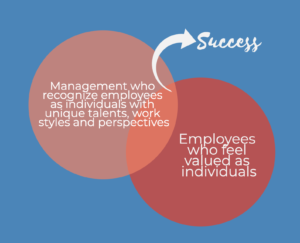I loved all three TED talks, but my fast favorite was Jason Fried discussing “Why work doesn’t happen at work”. Fried argues there are too many distractions at the office for anyone to get any work done. This could be considered a “controversial” stance to take, but one that immediately resonates with the audience. Just about everyone watching and listening can relate to the idea of having too much work to do, and too little time during the workday in which to get it done.
Fried may identify managers as a contributing factor to that lack of time, but immediately puts any managers in the audience at ease by self-identifying as a manager himself. This creates a sense of simpatico, as if the entire audience are now working with Fried on this problem and are open to hearing his thoughts on potential solutions.
—–
Sticking with Fried, I think his proposals on how organizations can give back time to their workers have merit. However, as he stresses, it’s up to managers to make that happen. By dedicating meeting-free blocks of time, management can communicate to the entire organization that it recognizes the value of interrupted time. This in turn could lead to those meetings which do remain on the calendar to be more productive than they might have been previously.
Thinking about how this connects with other things we’ve been reading and discussing with regards to organizational culture, I came up with the below Venn diagram:


Your inclusion of Fried decreasing his chances of coming across as off-putting, or offensive to anyone in the audience was a great point to make. His statement identifying himself as a manager when speaking about a manager’s impact in the workplace helps people to feel like they are not being attacked by his statements, so that was a good strategy of his you pointed out. Overall I agree that the way he positioned himself when speaking made the audience a lot more receptive and showed a great example of how to touch on a controversial topic.
Many folks who have been working from home during the pandemic are reporting greater productivity, even with the distractions that families provide for some of them–turns out that having greater control over one’s circumstances of work and fewer interruptions from coworkers makes a difference…